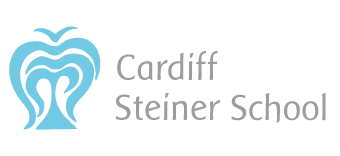FAQs
How do children integrate into mainstream education after Steiner education?
Transferring from Kindergarten (age 3-7)
Our Kindergarten children have been succesfully transferring to mainstream school since 1999 at all ages from 4 to 7. Here’s the experience of one of those children…
“My son stayed at Kindergarten until just after his seventh birthday in June. The teachers at Kindergarten had suggested that in his final term we spend a short session at home once a week on reading and writing. We did about half an hour on average a week.
He started in Class 3 in mainstream school in the September. The school had offered to keep him down as year as he had only just started learning to read and write, but we felt we’d try him in his peer age group and see how he got on.
On admission they assessed his reading age as 7 (bang on for his age!) and gave him extra support for his writing, spelling and maths. By parents evening in March they were amazed at his progress, his reading age was now 11.5 and by September (1 year after starting) he was reassessed as needing no extra support. He’d not only caught up in just a year but was actually ahead in some areas.
He loves school and has a real thirst for learning. The school has had many Kindergarten children moving on there and the headmaster says that what marks them all out is their love of learning and caring attitude to others. What more could you wish for?”
It’s an attitude echoed by the staff in the schools our children move on to:
“I have admitted children to our school from the Cardiff Steiner Kindergartens over the last seven years. Before the children entered the school I attended the School and saw at first hand the lovely interaction that takes place between the adults and the children and between the children themselves.
The children who have joined our school have added a richness to our school life. They have all been delightful personalities, with their different strengths and abilities and have worked hard to overcome any difficulties they have. I believe the relationship between the Steiner School and ourselves has enriched our church school.”
David Griffiths (former) Head Teacher of Peterston super Ely Church in Wales Primary School
Transferring during junior school (age 7 to 11)
Children who transfer out of a Steiner school between the ages of 7-11 are usually well prepared for mathematics, social studies, practical and artistic activities. They will probably have to upgrade their reading ability which generally can be achieved easily through extra school support or practice at home.
Transferring to secondary school and 6th form college (age 11 to 18)
In Steiner schools students regularly have to transfer into secondary and further education because their schools only go up to age 14 or 16. Schools develop an ongoing relationship with the schools and colleges which the children move onto. Experience shows that they integrate very successfully, and quickly gain reputations for their independence of thought and range of interests. In fact, in many cases, transferring students of this age group find themselves better prepared for the greater level of independent study required at A Levels. The student is likely to take along a distinguishing individual strength, personal confidence, and love of learning.
—From “Five Frequently Asked Questions” by Colin Price; originally printed in Renewal Magazine, Spring/Summer 2003
How do children integrate into Steiner school when they transfer in from mainstream education?
Children who transfer into Steiner school from mainstream education generally integrate very succesfully. The standards in Steiner schools are high and the breadth of subjects covered by the curriculum is extensive and it can take time to adjust to this. However, usually the child will quickly feel at ease and enjoy the absence of pressure. This in itself creates a positive relationship to the new learning environment that allows for rapid assimilation.
Children aged 7 to 11 are usually are up to grade in reading, maths, and basic academic skills, but need to learn bodily coordination skills, posture, artistic and social activities, handwriting and listening skills. Listening well is particularly important as most of the curricular content is presented orally by the teacher. The human relationship between the child and the teacher is the basis for learning, for acquiring understanding and knowledge rather than just information. Children who are used to learning from computers and other electronic media have to adjust.
Children who enter a Steiner school at secondary level often bring much information about the world. This contribution is recognised and received with interest by the class. They often have to adjust their learning habits, such as the tendency to experience learning as a competitive activity. They have to learn to approach the arts in a more objective way, not simply as a means for personal expression. In contrast, in their study of science, history, and the world, they need to relate what they learn to their own life and being. Involvement in what is learned about the world makes the world truly meaningful to them.
Why do Steiner schools teach reading so late?
Steiner Schools start formal reading and writing between the sixth and seventh birthday, normal in many European countries, but suprising to UK parents. We believe that there are many other things children need to learn before they begin to read and write, like social and emotional skills, kinetic skills, skills to do with the world around them. With time to learn these skills first formal learning is easier. Pupils start formal learning, such as the alphabet and numbers when we believe children are ready and can approach this challenge with ease and with great enthusiasm.
There is evidence that normal, healthy children who learn to read relatively ‘late’ are not disadvantaged by this, but rather are able quickly to catch up with, and can overtake, children who have learned to read early. Additionally, they are much less likely to develop the “tiredness toward reading” that some children taught to read at a very early age can experience later on. Instead there is lively interest in reading and learning that continues into adulthood.
Some children will, out of themselves, want to learn to read at an early age. This interest can and should be met, as long as it comes from the child. Early imposed formal instruction in reading can lead to ‘burn out’ in later years, when enthusiasm toward reading and learning may begin to falter.
If reading is not pushed, a healthy child will pick it up quite quickly and easily. Some Steiner parents become anxious if their child is slow to learn to read. Eventually these same parents are overjoyed at seeing their child pick up a book and not put it down and become from that moment a voracious reader. Each child has his or her own optimal time for “taking off.”
—From “Five Frequently Asked Questions” by Colin Price; originally printed in Renewal Magazine, Spring/Summer 2003
How do Steiner students do after leaving school?
Steiner students are accepted in and graduate from a broad spectrum of colleges and universities. Graduates reflect a wide diversity of professions and occupations including medicine, law, science, engineering, computer technology, the arts, social science, government, and teaching at all levels.
According to a recent study of Steiner graduates:
- 94% attended college or university
- 47% studied humanities or arts
- 42% studied sciences or maths
- 89% are highly satisfied in their choice of occupation
- 91% are active in lifelong education
- 92% placed a high value on critical thinking
- 90% highly values tolerance of other viewpoints
What about computers and Steiner Education?
Steiner teachers feel the appropriate age for computer use in the classroom and by students is 14. We feel it is more important for students to have the opportunity to interact with one another and with teachers in exploring the world of ideas, participating in the creative process, and developing their knowledge, skills, abilities, and inner qualities. Steiner students have a love of learning, an ongoing curiosity, and interest in life. As older students, they quickly master computer technology, and graduates have successful careers in the IT and Tech industries.
Further reading
As nurseries and schools nationwide rush to supply their classrooms with computers, ipads and wii as learning aids for children from as young as just 1 years old, the contrarian point of view can be found at the epicenter of the tech economy.
Why the chief technology officer of eBay sends his children to Steiner School
Who really benefits from putting high-tech gadgets in classrooms?
Computers ‘do not improve’ pupil results, says OECD (BBC News, Sep 2015)
Are Steiner schools religious?
Steiner schools are non-sectarian and non-denominational. They educate all children, regardless of their cultural or religious backgrounds. The curriculum is comprehensive, and seeks to bring about recognition and understanding of all the world cultures and religions. Steiner schools are not part of any church. They espouse no particular religious doctrine but are based on a belief that there is a spiritual dimension to the human being and to all of life. Families come from a broad spectrum of religious traditions and interest. [further reading]
Is Steiner education similar to Montessori?
These two educational approaches began with a similar goal: to design a curriculum that was developmentally appropriate to the child and that addressed the child’s need to learn in a tactile as well as an intellectual way. The philosophies are otherwise very different.
Further reading


